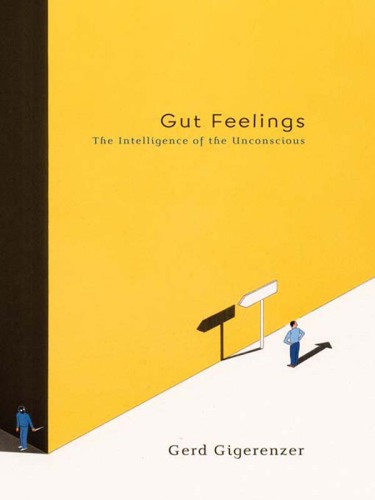
Gut Feelings
The Intelligence of the Unconscious
کتاب های مرتبط
- اطلاعات
- نقد و بررسی
- دیدگاه کاربران
نقد و بررسی

May 7, 2007
G
igerenzer's theories about the usefulness of mental shortcuts were a small but crucial element of Malcolm Gladwell's bestseller Blink,
and that attention has provided the psychologist, who is the director of the Max Planck Institute for Human Development in Berlin, the opportunity to recast his academic research for a general audience. The key concept—rules of thumb serve us as effectively as complex analytic processes, if not more so—is simple to grasp. Gigerenzer draws on his own research as well as that of other psychologists to show how even experts rely on intuition to shape their judgment, going so far as to ignore available data in order to make snap decisions. Sometimes, the solution to a complex problem can be boiled down to one easily recognized factor, he says, and the author uses case studies to show that the “Take the Best” approach often works. Gladwell has in turn influenced Gigerenzer's approach, including the use of catchy phrases like “the zero-choice dinner” and “the fast and frugal tree,” and though this isn't quite as snappy as Blink
, well, what is? Closing chapters on moral intuition and social instincts stretch the central argument a bit thin, but like the rest will be easily absorbed by readers. Illus.

June 1, 2007
Trust your hunches, for intuition does have an underlying rationale, according to this accessible account from a German scientist of human cognition. Permeated with everyday scenarios, such as picking stocks, schools, or spouses, the book adopts an evolutionary perspective of how people act on the basis of incomplete information (usually successfully). He sets the table with an example of a baseball player pursuing a fly ball, who relies not on conscious calculation but on an evolved gaze heuristic to make the catch. Definitions of such rules of thumb dot the text, which Gigerenzer embeds amid his presentations of studies that indicate, for example, that financial analysts dont predict markets any better than partially informed amateurs. Explaining this as an outcome of a recognition heuristic, Gigerenzer argues that knowing a little rather than everything about something is sufficient to take action on it. He forges on into medicine, law, and moral behavior, succeeding in the process in converting a specialized topic into a conduit for greater self-awareness among his readers.(Reprinted with permission of Booklist, copyright 2007, American Library Association.)

























دیدگاه کاربران